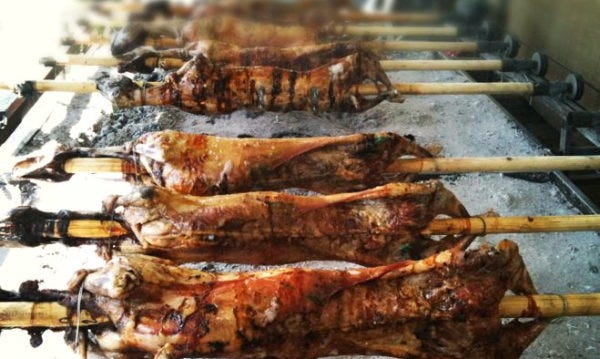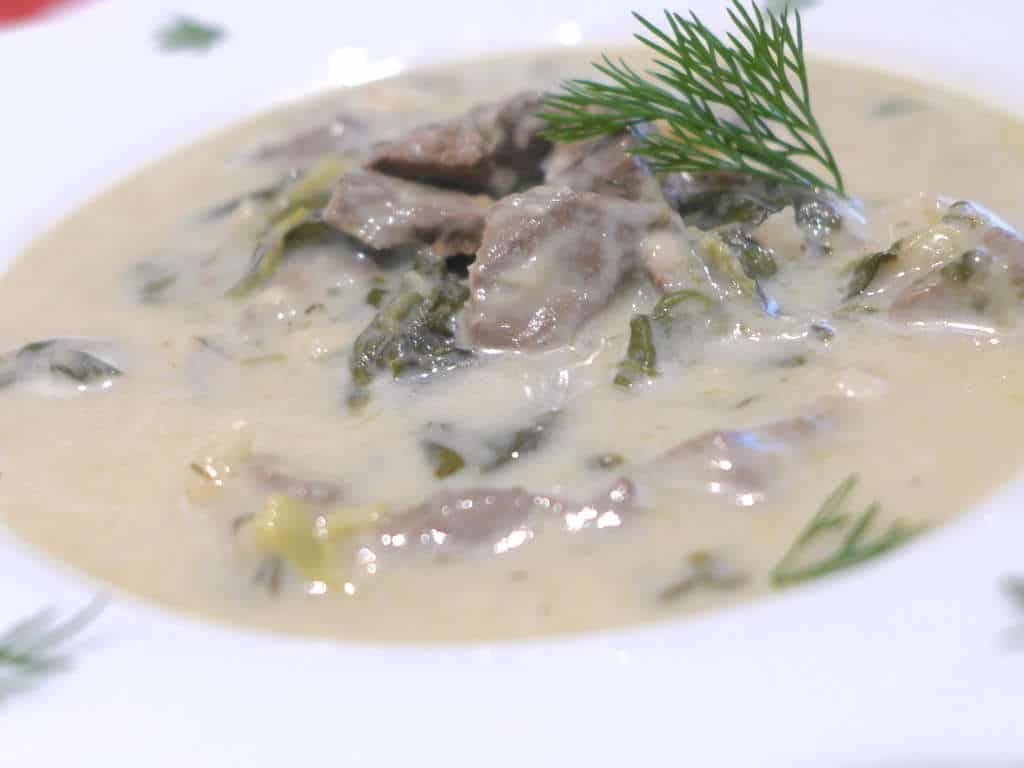An Ode to Innards
Hello everyone.
My good friend Peter asked that I write a little something on my experience growing up in a household that sometimes enjoyed animals' innards. So here it goes:
Liver and onions was something that seemed like punishment for the longest time growing up. It was a meal that my parents would make me eat, or my grandparents, first generation Greek-Americans, would guilt me and my brothers into eating. Their tactic was telling us we couldn’t become members of the “Clean Plate Club” and partake in dessert if we didn’t finish everything on our plates. There was always something about the texture that really got me.
Both my parents, like my grandparents, would usually cook lamb or chicken liver the same way - cleaned, covered in flour, and then at really high temperatures in a cast iron skillet with the silky-smooth olive oil of Greece. Only with a cast iron skillet though. Why that exactly is? I think the iron probably retains a higher temperature as compared to the typical frying pan and has the flavors of the other dishes with which it was used to cook.
Then came Easter. Happy Easter to all those that celebrate. Anyhow - after the Resurrection following the end of Lent, we always had the traditional Greek soup called magiritsa (for my people - yes THAT μαγειρίτσα).
Let's just say for the longest time it was better that I didn't know what was in this soup. This traditional post-Lenten soup includes all of the innards of the lamb - heart, lungs, liver, and for good measure intestines. I'm fairly certain that this soup, in addition to its symbolism, was prepared with organ meats because in most villages, nothing goes to waste. So, if the whole village was going to slaughter 500 lambs, there would be a lot of waste if only the shanks and legs were eaten.
When I found out eventually the ingredients of magiritsa, I had reached an age when I wasn't A.) a child and disgusted by the idea and B.) it tasted so good that it really didn't matter what the contents of the soup was. For those interested in trying this dish - I suggest finding a Greek friend. For those without Greek friends, I'd suggest trying this recipe and enjoy for yourselves.
Nowadays when it isn't Easter time or I'm not with my parents, I rely on my butcher to supply the innards that I eat. I'm a member of a local meat share, Walden Local Meat. With the meat coming from all local farms in the New England area, that's where I source the sustainably raised chicken liver I've been cooking when it’s included in my monthly meat share. Since my younger years, I have moved away from high heat, cast iron only recipe of my parents and grandparent’s homes. Instead, I use a Le Creuset at high temperature with lots of onions and lots of silky-smooth cold-pressed Greek olive oil.
Enjoy peeps,
James
Δημήτρης Τζαννής
Related Articles:






